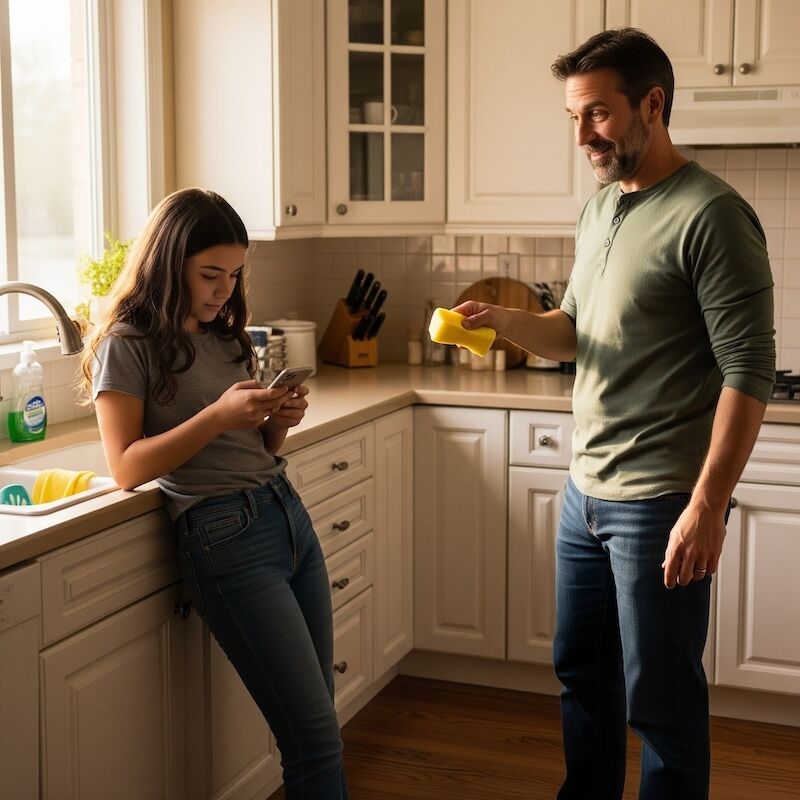Egyptian teens are stuck in a digital tug-of-war—screen time is winning, and chores are losing ground. A 2022 study of adolescents in international schools across Cairo revealed that 77% of them suffer from mild to severe internet addiction, with 35% in the moderate range and 3.6% clinically significant . That’s not just idle scrolling—it’s a symptom of how their world has rearranged itself. Phones now demand attention like chores once did, and the sink? Rarely.
But here’s the catch: chores aren’t just household maintenance, they’re human development. Washing dishes teaches delayed gratification. Putting clothes in a hamper models responsibility. These aren’t outdated rituals—they’re training wheels for adulthood. Yet when screens dominate, teens shrug off these micro-lessons, leaving families to fill in the gap.
So what can we do? First, set up a “chore checkpoint”: a clear rule—task first, screen later. “Do your dishes, then scroll.” No negotiation. No sneaking. Just structure. Second, keep it bite-sized. “Take out those two trash bins” is far easier than “clean the kitchen.” Easy to do, easy to measure. Third, show why it matters. Explain that laundry soap, internet bills, electricity—they all cost. If they pitch in at home, they’re literally earning their screen privileges. It turns entitlement into empowerment.
Humor is your secret weapon. Use playful lines like “Unless your phone can mop, we still need you,” and you’re not lecturing—you’re bonding. You’re reminding them that this family operates together, not paused for one.
Let’s not forget the bigger context: moderate internet addiction in teens correlates with anxiety, depression, and even decreased academic performance. So chores aren’t just chores—they’re a form of self-care, a buffer between endless scrolling and mental health. When you help your teen balance screen time with responsibility, you’re actually safeguarding their well-being.
Now, Cairo’s teen demographics show why this matters: with about 17 million adolescents in Egypt, nearly 1 in 5 people are in this age group . That’s a lot of future parents, workers, and voters—shouldn’t we equip them better?
Tonight, try a check-in: one chore, one screen token. Keep it fair. Keep it clear. Keep it human. Over time, chores won’t feel punitive—they’ll feel normal. And one day, when they face the bigger things—work deadlines, relationships—they’ll know how to show up.
Because parenting isn’t about perfection; it’s about preparation. And sometimes, preparation is just insisting they rinse a plate before a TikTok binge.







Leave a Reply
You must be logged in to post a comment.